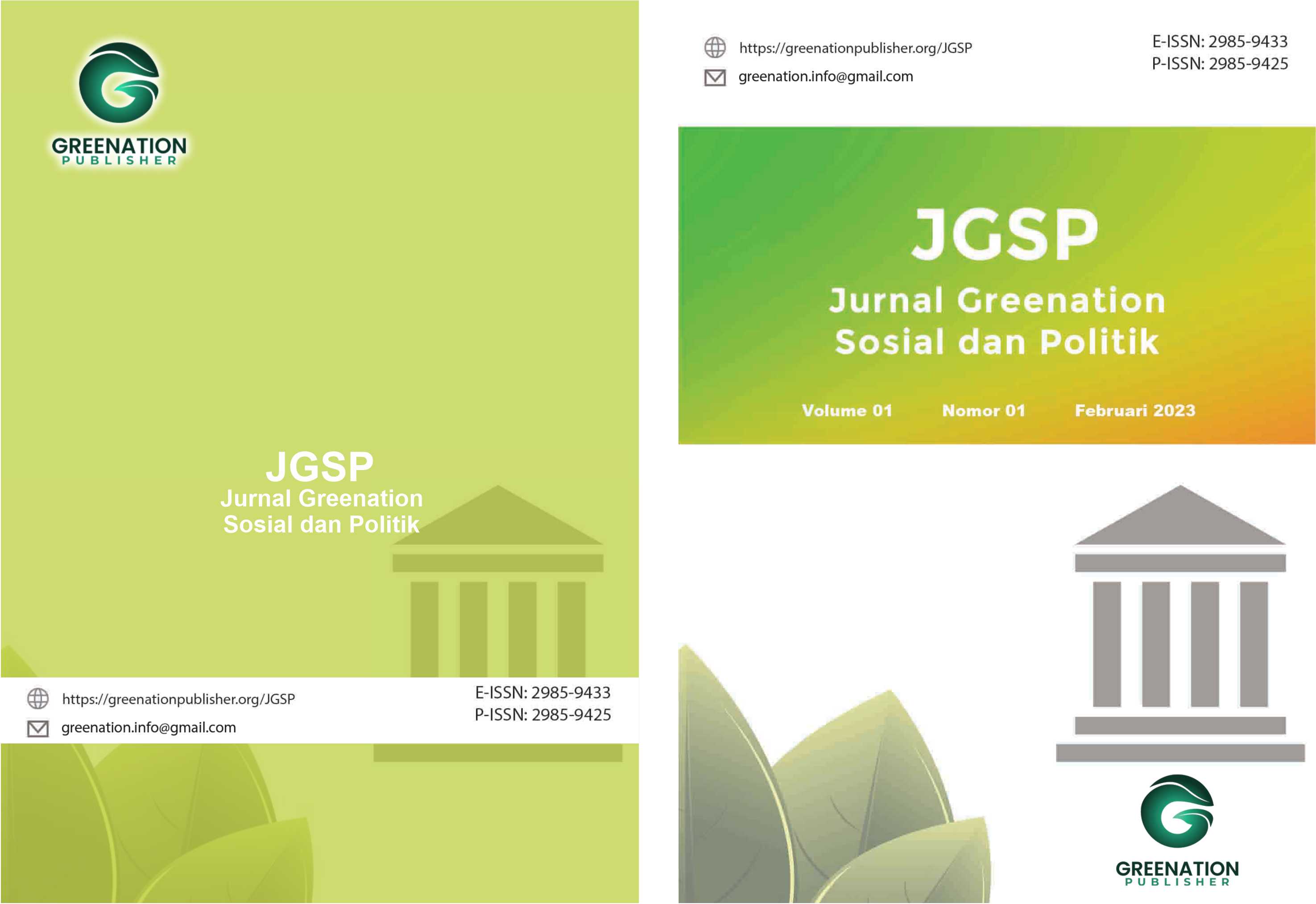Analysis of the Effectiveness of the Assessment Center as A Competency Testing Method for Police Sector Chiefs (KAPOLSEK) in Improving Police Performance within the Metro Jaya Regional Police
DOI:
https://doi.org/10.38035/jgsp.v3i3.438Keywords:
Assessment Center, Sector Police Chief (Kapolsek), merit system, competence, Indonesian National Police (Polri), Metro Jaya Regional Police (Polda Metro Jaya)Abstract
The position of Sector Police Chief (Kapolsek) holds a strategic role within the operational structure of the Indonesian National Police (Polri), especially in maintaining security and public order at the sub-district level. To ensure professionalism and accountability of Kapolsek officials, a selection method is needed that can objectively measure competence. The Assessment Center emerges as a competency-based mechanism considered to have high validity in assessing managerial, technical, and socio-cultural dimensions. This study analyzes the effectiveness of the Assessment Center in competency testing for the Kapolsek position within the Metro Jaya Regional Police, using a normative juridical approach and descriptive analysis. The legal foundations used include Law Number 2 of 2002 concerning the Indonesian National Police, Government Regulation Number 11 of 2017 in conjunction with Government Regulation Number 17 of 2020 concerning Civil Servant Management, as well as the Regulation of the Indonesian National Police Number 12 of 2024 concerning the Assessment Center within the Police environment. The results of the study show that the Assessment Center is a method that is normatively and technically in line with the principles of meritocracy and good human resource governance. However, its implementation still faces challenges such as a lack of assessors, infrastructure limitations, and organizational culture resistance to a competency-based selection system. Institutional strengthening and consistent enforcement of the merit system are required so that the results of the Assessment Center truly serve as an objective basis for the appointment of Kapolsek positions. With the optimization of this system, the National Police is expected to form sectoral leadership that is professional, adaptive, and oriented toward public service.
References
Annafi, S. &. (2025). TANTANGAN DAN PELUANG IMPLEMENTASI MERITOKASI DALAM REKRUITMEN DAN PROMOSI JABATAN PADA ASN. Integrative Perspectives of Social and Science Journal, 2(2), 2867-2880.
Assidiqi, S. (2025). Efektivitas assessment center dalam seleksi dan promosi jabatan di kepolisian negara republik Indonesia. Jurnal Konseling dan Pendidikan, 13(2), 28-38.
Estede, S. A. (2025). Manajemen SDM: Membangun Tim Produktif dan Kompetitif. Yogyakarta: PT. Star Digital Publishing.
Fadhli, M. &. (2022). Penerapan metode prototyping pada aplikasi Sentra Pelayanan Kepolisian Terpadu berbasis web. Journal of Applied Computer Science and Technology, 3(1), 127-133.
Febri Surya, W. &. (2022). The role of assessment center in career development in polda bangka belitung islands. International Review of Humanities Studies, 7(2), 457-472.
Hasibuan, E. S. (2021). Hukum kepolisian dan criminal policy dalam penegakan hukum. Depok: PT. RajaGrafindo Persada.
Hasibuan, E. S. (2023). Wajah polisi presisi: melahirkan banyak inovasi dan prestasi. Depok: PT. RajaGrafindo Persada.
Khayat, K. A. (2021). ANALYSIS OF THE USAGE OF ASSESSMENT CENTER RESULT OF THE PLANNER DEPARTEMENT AT THE RESORT POLICE UNDER THE GREATER METROPOLITAN REGIONAL POLICE. Journal of Public Policy and Applied Administration, 3(2), 35-42.
Maulitya, T. A. (2024). Literature Review: Penerapan Sistem Merit Dalam Proses Rekrutmen dan Seleksi Polri. Media Hukum Indonesia (MHI), 2(2).
Maysura, N. A. (2025). Peran Sistem Merit dalam Reformasi Birokrasi di Indonesia: Tantangan dan Solusi dalam Perspektif Hukum Administrasi Negara: Peran Sistem Merit dalam Reformasi Birokrasi di Indonesia: Tantangan dan Solusi dalam Perspektif Hukum Administrasi Negara. Mendapo: Journal of Administrative Law, 6(1), 85-105.
Pamungkas, Y. &. (2024). Efektivitas Assessment Center pada Pembinaan Karier di Satuan Kerja dan Satuan Wilayah Polda Sumbar. Innovative: Journal Of Social Science Research, 4(4), 13764-13783.
Prasetyo, F. I. (2024). Manajemen Sumber Daya Manusia: Teori dan Kasus dari Sudut Pandang Individu dan Organisasi. Pekalongan: Nasya Expanding Management.
Putri, N. K. (2021). Peningkatan Kualitas Pelayanan Di Polsek Pandaan Menggunakan Metode Service Quality Dan 5R. Jurnal Valtech, 4(2), 57-63.
Robertho, A. R. (2021). The Implementation of National Police Assesment Center in encouraging open career promotion. Jurnal Ilmiah Ilmu Administrasi Publik, 11(2), 534-541.
Saharuddin, Pede, A., Yunus, Y., Lasori, S. A., & Salam, S. (2022). The Role of Community Policing for Law Enforcement in Resolving Issues outside the Court. Nurani Hukum, 5, 23.
Saifulloh, M. &. (2024). Peran Komunikasi Dalam Peningkatan Kemampuan Fungsi SDM Polda Metro Jaya. Jurnal Pustaka Dianmas, 4(2), 58-66.
SETIADI, L. H. (2018). Peningkatan Kemampuan Manajerial Kepemimpinan Kapolsek. Jurnal Litbang Polri, 21(2), 1-78.
Setyawan, D. W. (2024). Optimalisasi Manajemen Beban Kerja di Assessment Center Menggunakan Metode Full Time Equivalent (FTE). Jurnal Teknologi dan Manajemen Industri Terapan, 3(1), 11-19.
Sulaiman, K. P. (2025). SISTEM MERITOKRASI DALAM UPAYA PENERAPAN GOOD GOVERNANCE DI INDONESIA. Triwikrama: Jurnal Ilmu Sosial, 8(3), 131-140.
Ulum, M. C. (2018). Public Service: Tinjauan Teoretis dan Isu-Isu Strategis Pelayanan Publik. Malang: Universitas Brawijaya Press.
Downloads
Published
How to Cite
Issue
Section
License
Copyright (c) 2025 Afriska Nababan, Vita Mayastinasari, Joko Setiono

This work is licensed under a Creative Commons Attribution 4.0 International License.
Hak cipta :
Penulis yang mempublikasikan manuskripnya di jurnal ini menyetujui ketentuan berikut:
- Hak cipta pada setiap artikel adalah milik penulis.
- Penulis mengakui bahwa Jurnal Greenation Sosial dan Politik (JGSP) berhak menjadi yang pertama menerbitkan dengan lisensi Creative Commons Attribution 4.0 International (Attribution 4.0 International CC BY 4.0) .
- Penulis dapat mengirimkan artikel secara terpisah, mengatur distribusi non-eksklusif manuskrip yang telah diterbitkan dalam jurnal ini ke versi lain (misalnya, dikirim ke repositori institusi penulis, publikasi ke dalam buku, dll.), dengan mengakui bahwa manuskrip telah diterbitkan pertama kali di JGSP.
























